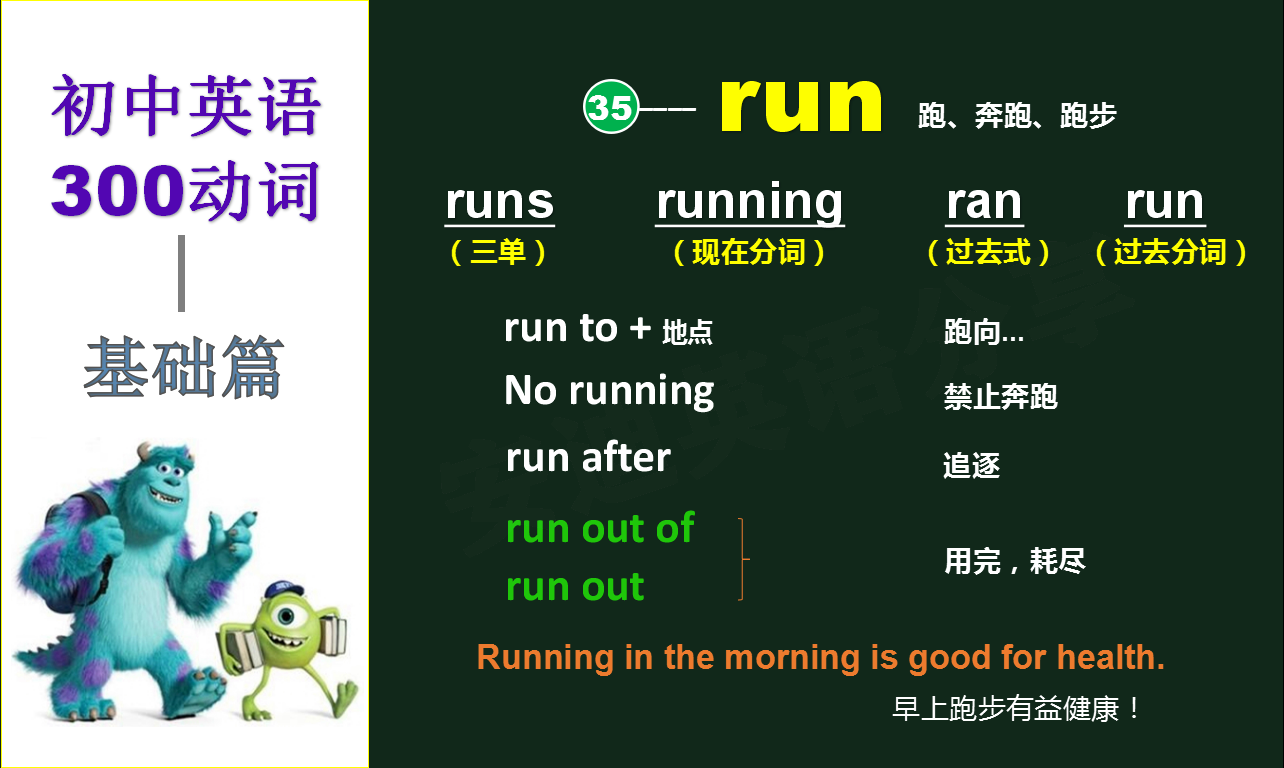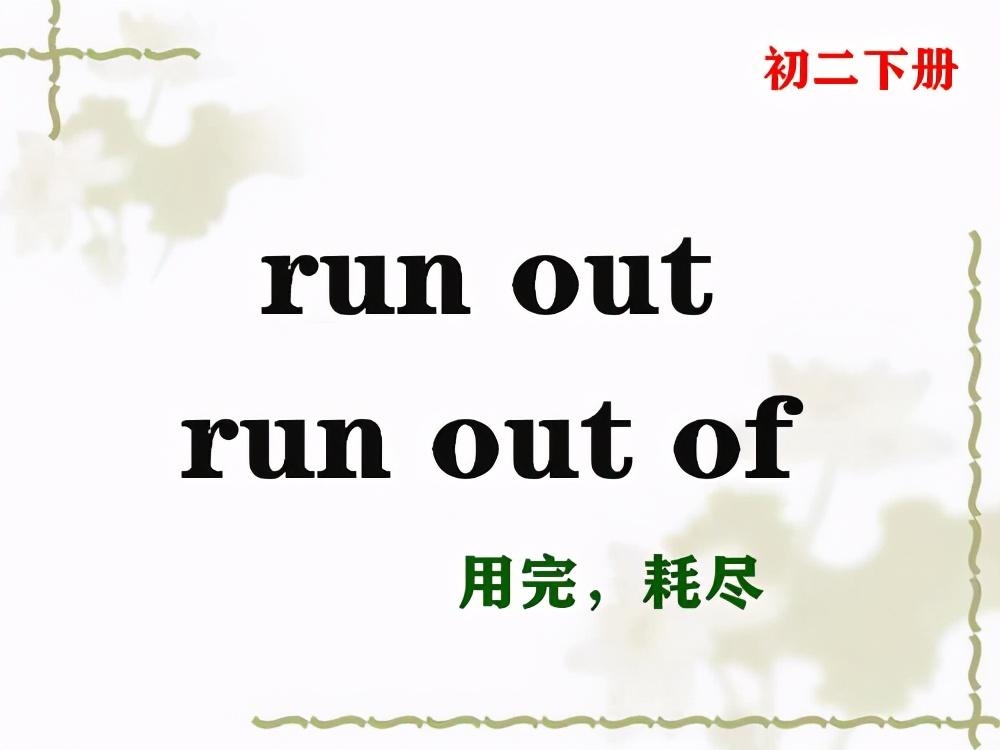run的过去分词和过去式各是什么(run 两种含义,一个主动表被动的短语)
100次浏览 发布时间:2024-11-03 08:02:43
run在初中阶段主要有两种含义,第一种表示“跑,跑步”,第二种表示“经营,管理”;还需要掌握关于run的一个主动表被动短语!
runs(三单)- running(现在分词)- ran(过去式)- run(过去分词)
现在分词需要双写 n,过去式与过去分词均为不规则变化,需要牢记;

记得关注哦
run 在初中阶段需要掌握其基本含义与一个拓展意思;
1、run 意为“跑,奔跑,跑步”
I like running in the morning.
我喜欢晨跑。
The boy turned and ran when he saw me.
那个男孩看见我,转身就跑了。
go running 跑步
Would you like to go running with me?
你要和我一起去跑步吗?
No running = Don't run 不准跑,禁止奔跑
Mr. Wang says,"No running in the hallway."
Mr. Wang says,"Don't run in the hallway."
王老师说:“禁止在走廊奔跑”。
run to... 跑向...
My dog runs to me happily every time I get home.
每次我回家时,狗狗就高兴地跑向我。
run away 跑开,离开
She saw a snake and ran away quickly.
她看见一条蛇,快速跑开了。
run after 追逐,追赶
We can't run after each other in the classroom.
我们不能在教室里相互追赶。
2、run 意为“经营,管理”
run a hotel 经营旅馆
run a supermarket 经营超市
run a family 养家
此意思以理解为主,在阅读题型中出现过。

重点短语:
run out 与 run out of
两者均表示“用尽,耗尽”,用法区别在于:
run out 主语为被用尽的事物,后不接宾语;(主动表被动)
run out of 后需接宾语,主语通常为人;
She ran out of all the money.
All her money ran out.
她的钱都花光了。
Do you think the water will run out in the future?
你认为将来水会被用完吗?
The parents have run out of money to save their son.
父母用完了所有的钱来救他们的儿子。
相关文章
- 小米汽车申请文本数据分类相关专利,提高分类的准确性 2025-06-07
- 男子为追求女生相约出国旅游,追爱不成要求女生AA,法院判决→ 2025-06-07
- 2025甘肃生态环保媒体行|解锁兰州新区“绿色密码” 2025-06-07
- 山东好景|高考首日,眼神里的温情祝福 2025-06-07
- 痛心!知名演员去世!曾在《西游记》中扮演20多个角色,六小龄童发文悼念 2025-06-07
- 西安交大二附院肾病科代表团出访乌兹别克斯坦布哈拉国立医科大学 2025-06-07
